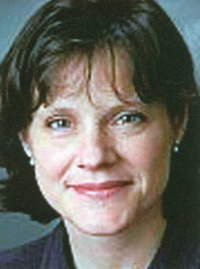Attorney Barbara Wheaton has been practicing in the area of estate planning for more than 17 years. Her clients include individuals, financial institutions, and tax-exempt organizations. In a recent conversation with Jennifer Southard, vice president, donor services and operations at the Maine Community Foundation, Wheaton offered some of her insights about the connections between estate planning and philanthropy.
 MaineCF: How do you raise the issue of philanthropy?
MaineCF: How do you raise the issue of philanthropy?
Wheaton: I’m not shy about asking my clients whether there’s a role for charitable giving in their planning. Depending on the client, it may be something as simple as asking, in the course of putting together a basic will, “Are there any charities to which you might like to give a portion of your estate?” Often people of modest means would like to make a gift to an organization that is important to them, but they don’t feel they have the wealth to do it. Simply asking the question makes them realize that they can in fact do so.
For clients who are more affluent, often the discussion takes shape in terms of a specific financial or estate-planning problem we are trying to solve. Often I can identify a specific charitable giving opportunity or technique that might suit them and help to address the problem.
MaineCF: Do you have any examples of a client who came into your office and may not have been thinking about making a charitable gift, but who at some point in the discussion changed his or her plans?
Wheaton: I have had clients incorporate a lot more charitable giving into their plan after such a discussion. Usually there is some tax or financial objective they’re trying to achieve, but they don’t realize that a charitable giving technique might help them. For example, I have clients who wanted to provide more income for their children. In this case, a Charitable Remainder Trust worked perfectly. The couple had highly concentrated, low basis stock. It created risks for the portfolio, but they couldn’t diversify it very easily. We were able to address the diversification issue with a CRT. At the same time, the children were named lifetime beneficiaries of the CRT. The parents achieved their objectives–getting more income to the children and diversification of the concentrated stock–in an extremely tax-efficient manner.
Often people who are selling a business will not think of the role philanthropy can play in the sale. When you show them how a donor-advised fund or some other charitable vehicle can reflect their entrepreneurial spirit, will allow them to turn their energies to some philanthropic passion, and may help produce a more tax-efficient business transaction, you’ve really captured their imagination.
I find that entrepreneurs in the business world are well suited to become entrepreneurs in the philanthropic world. I’ve had a number of clients who have been ecstatic when they realize that they can maximize their return on the sale of a business and turn that tax saving into something humanitarian and philanthropic.
MaineCF: Do you have any favorite stories of clients you’ve worked with and how bringing philanthropy into the picture has really made it a possibility for everyone?
Wheaton: Over the years I have had many opportunities to feel like I contributed to something positive. On the philanthropic side, I have a client I enjoy tremendously, who is very involved in the community. She came to me after a divorce. She was looking to find somebody who might make her issues and concerns a little more central to the estate planning process, but she wasn’t quite sure how to go about that.
We explored using a private foundation, but that seemed a little too ambitious, so we looked at a donor-advised fund at the Maine Community Foundation instead. We were able to accomplish significant tax savings in the liquidation of her business interests. We were also able to make the client feel like an active participant in her philanthropy. She has tapped into the educational services that the foundation provides around issues of philanthropy. MaineCF has helped her identify appropriate grant recipients and to understand the network of organizations addressing issues important to her.
The client moved from being what one might call a somewhat passive philanthropist to being a very active philanthropist. I would say that’s one of my favorite stories. She’s also a great lady.
Barbara Wheaton is a partner at Pierce Atwood LLP in Portland. Her legal practice includes all aspects of estate planning, charitable giving, and estate and trust administration. She is a graduate of Bowdoin College and holds a J.D. from Harvard Law School. She serves as Director and Immediate Past President of the Maine Estate Planning Council and is on the Gift Acceptance and Investment Committee of the United Way Foundation of Greater Portland. She is also a trustee of the Maine College of Art.





